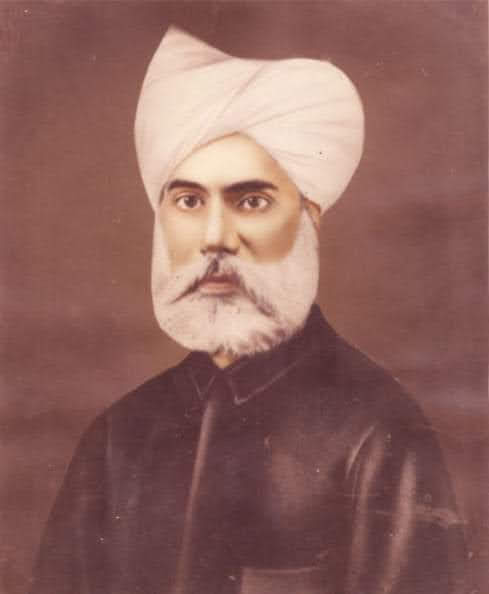
Khilnani families are scattered over different cities of India and United States, or may be in other countries of the world
By Nasir Aijaz
Mr. Prakash Khilnani, settled in the USA for about a decade, has always been longing for reunion of Khilnani families scattered over different cities of India and United States, or may be in other countries of the world.
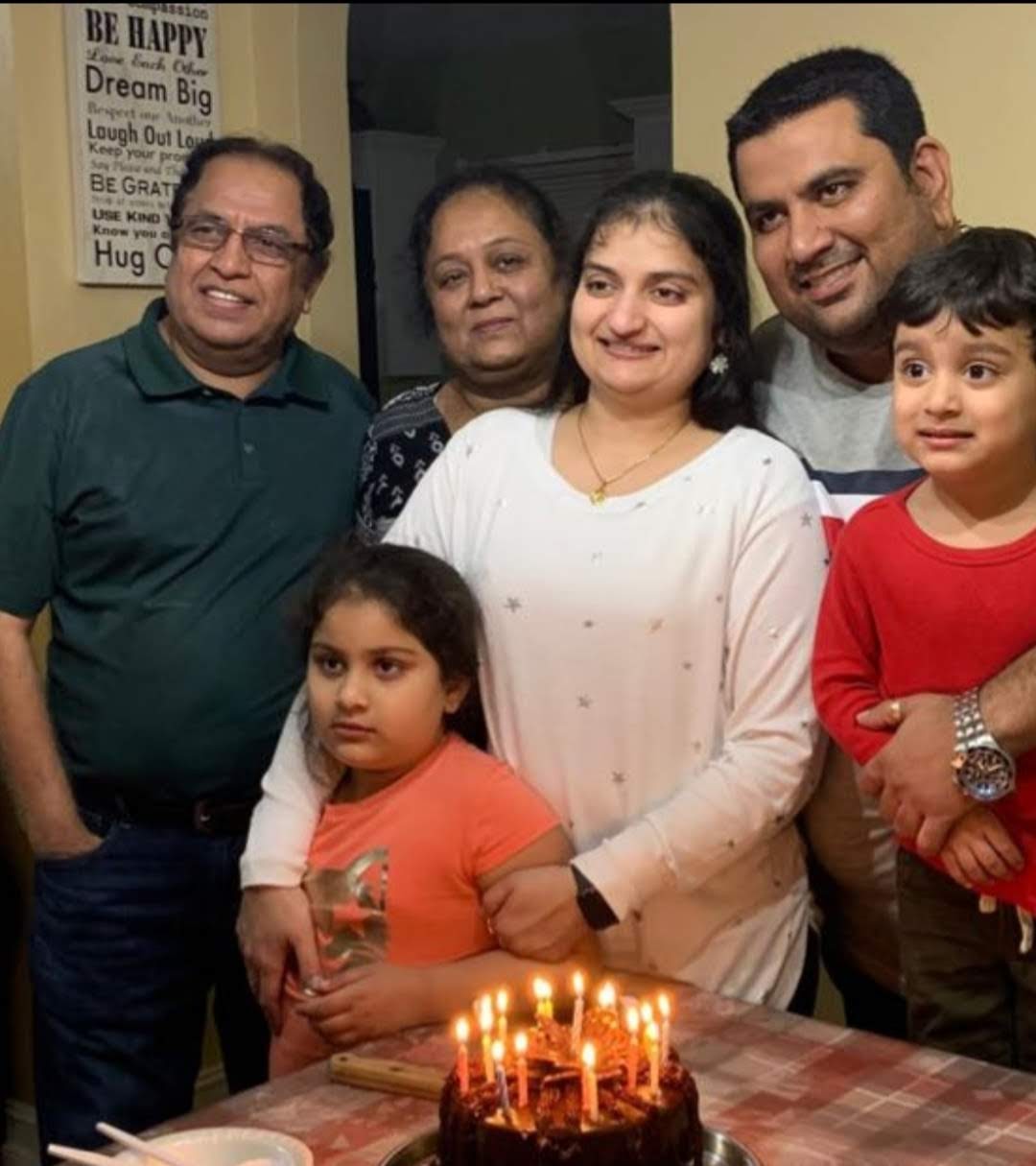
The Khilnanis had to migrate to India leaving ancestral abodes during partition of subcontinent in 1947 like other hundreds of thousands Sindhis. Their hometown in Sindh was Bhiria, a small but historic town of Sahiti district Naushehro Feroze (Formerly part of Nawabshah district). The Khilnanis had been playing a distinguished role before the partition in every sphere of life including education, law, agriculture, trade and business and were known for their philanthropy. Some of the Khilnani families had shifted from Bhiria to Karachi in 19th century and were well-established businessmen while some of them were renowned lawyers having completed education in England. The partition had uprooted all the families of such a legendary dynasty of Sindh.
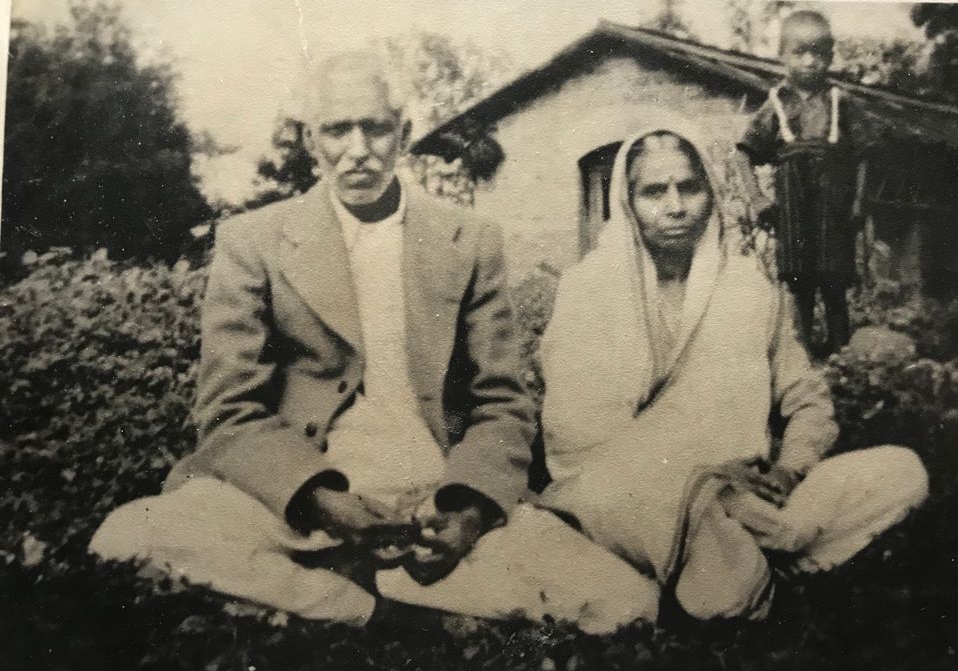
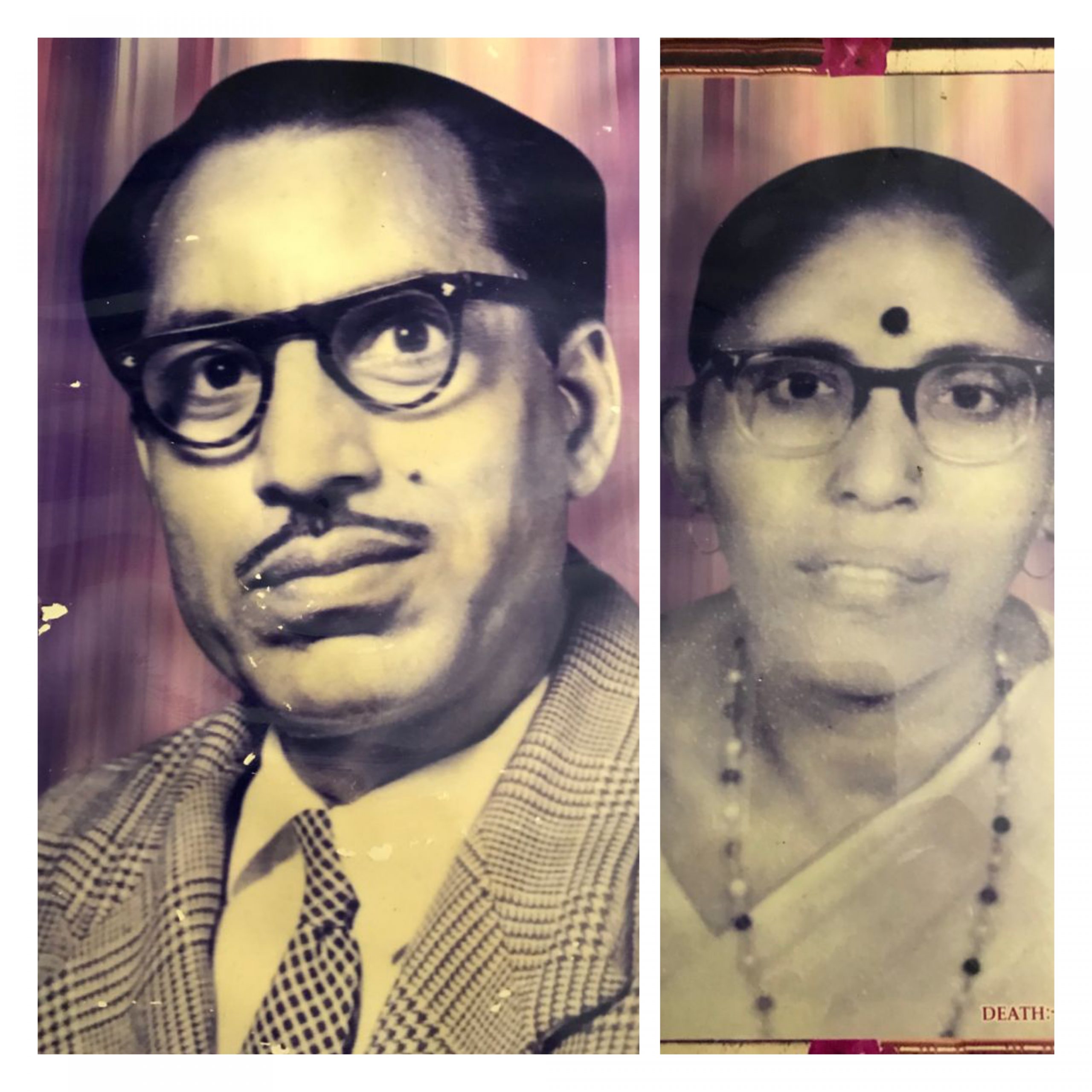
“We all are descendants of great educationist, writer and social reformer of Sindh Rai Bahadur Dewan Kauromal Chandanmal Khilnani and his cousins. We are sprouts of these legendary dynasty but unfortunately scattered and having no link with each other except a few,” Mr. Prakash had said three years back, expressing his desire to connect the Khilnanis.
“They are well-established in different fields but are indifferent to the need of reunion,” Prakash said who had spent his life serving a private sector company in India before moving to USA.
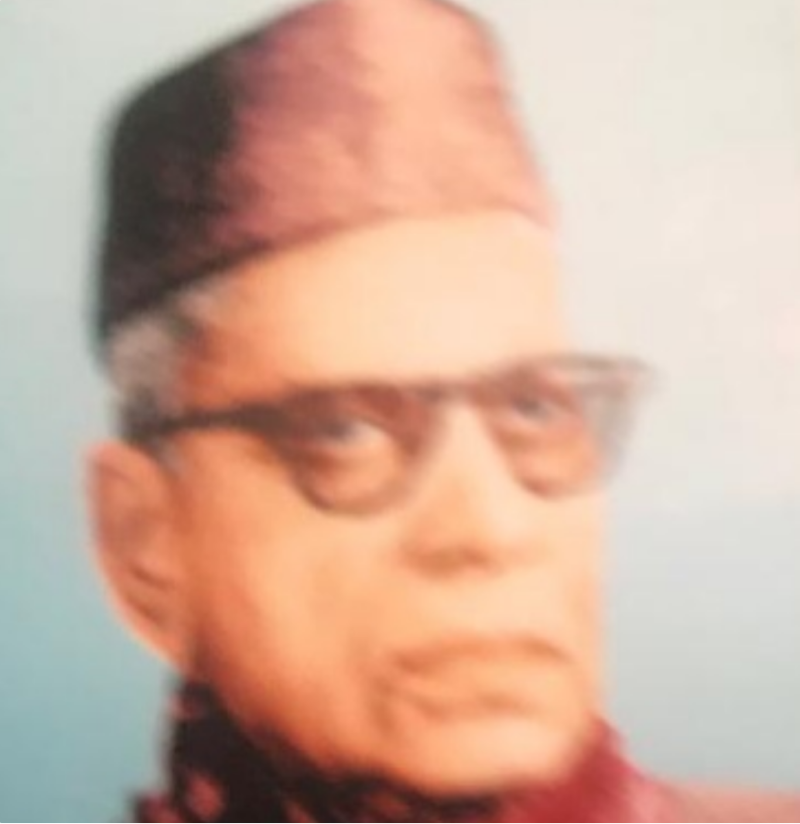
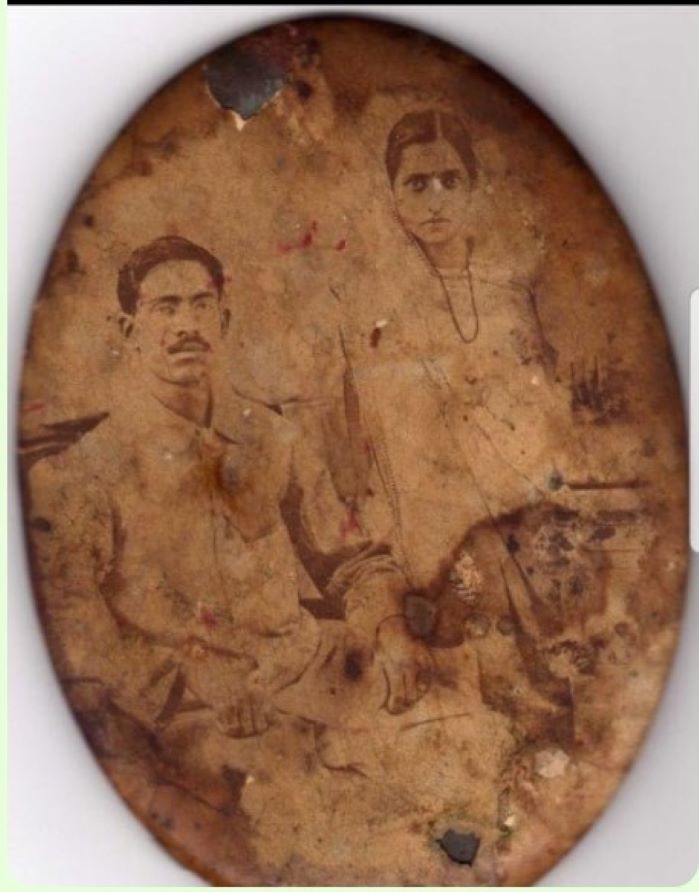
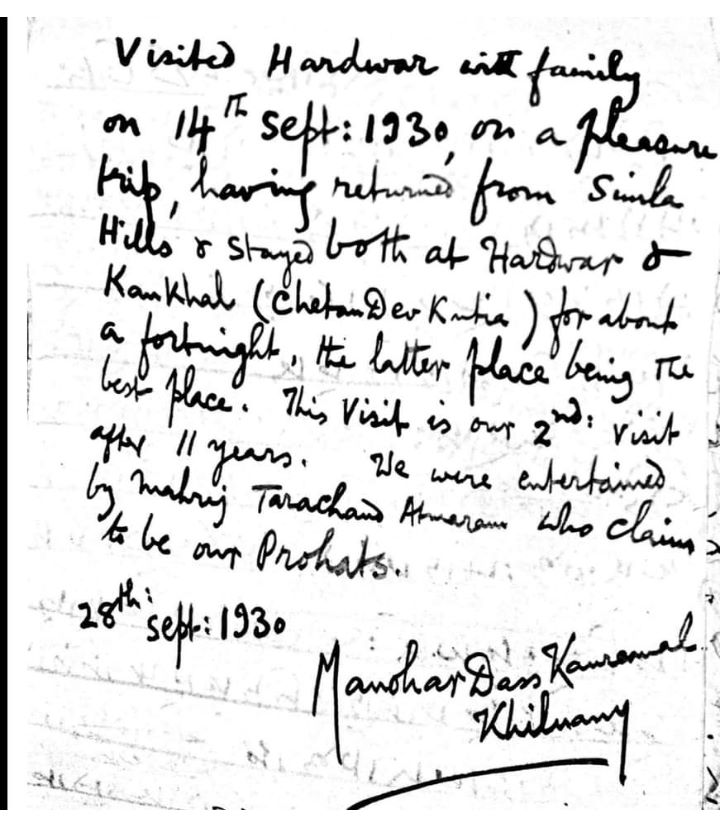
Although, born after partition in India, and had never visited the hometown of his ancestors, Prakash loved it since childhood after listening to the stories of Bhiria from his father who was in a private job in India when the partition was announced. Being unable to visit his ancestors’ motherland, the only thing he had to satisfy nostalgic feelings was a ‘treasure’ brought by his grandparents, which he has preserved for all these decades. The ‘treasure’ includes a gramophone and some utensils.
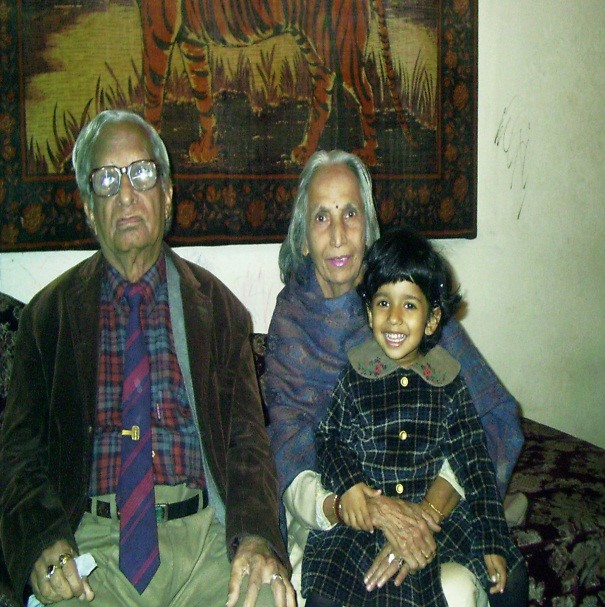
“My father and uncle, both were in a private job in India when the partition took place. My grandparents and a few other family members were there in Bhiria, who migrated taking some things – and those include a few utensils made of brass and a gramophone,” Prakash told.
“I was born in 1955 and didn’t see my grandfather who passed away in 1954, but my father used to share memoirs of ancestors and homeland. I grew up listening to those memoirs that always reminded me of our roots”, he proudly says.
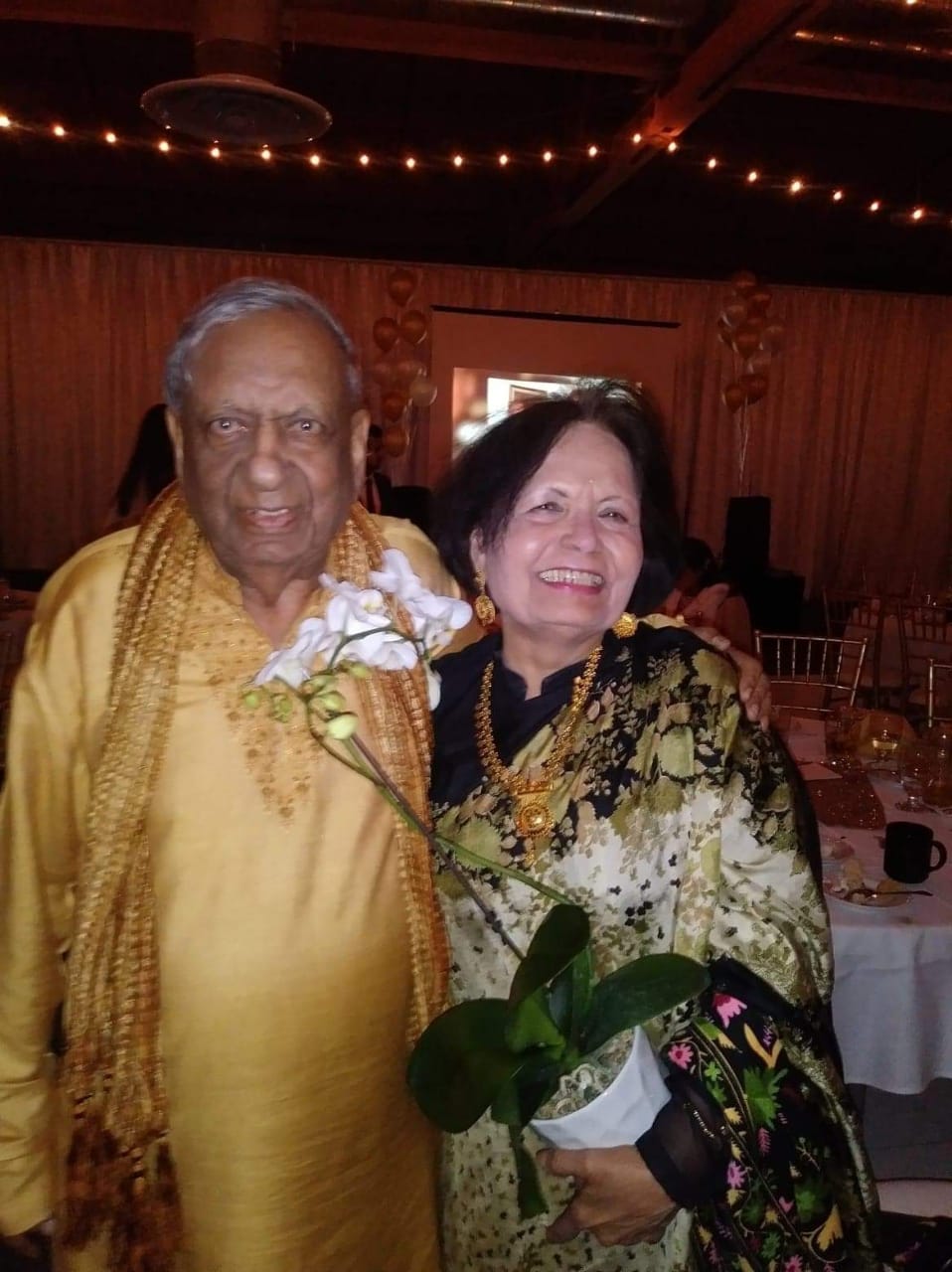
“All these things, which I have preserved, are sacred for us,” Prakash said and added, “On the occasion of Diyari (Diwali) and other religious festivals, we put all the utensils in front of us for rituals.”
Sharing further, Prakash said his father used to tell him that their family was the first one to buy the gramophone in Bhiria in 1920. “We had dozens of gramophone records which included some rare songs of Sindhi singers of that time but unfortunately, most of them couldn’t be preserved.”
Prakash Khilnani said that besides gramophone and utensils, he also has some weights and measures, and a pair of scales or Tarazi/Sahmi, as called in Sindhi language. “It is made of pure silver and is kept in a wooden box.”
Also read: Renu Khilnani – A legendary lady’s journey from a singer to an educationist
My parents had settled in Vadodara (Baroda) city of Gujarat in India after the partition. “All these antiques were there at our home, but I took all these things along when I moved to America,” he told.
“One of these bowls belongs to my father’s uncle Motiram Aaildas Khilnani. On this bowl, his name Motiram is written in Hindi.”
“Motiram was real uncle of my father Sadhuram,” he said and added, “The bowl is made of ‘Kut’, as called in Sindhi language, and is some 85 years old.”
“The tiffin belongs to my grandfather Atmaram Aildas Khilnani. It’s made of pittal (brass) and may be more than 100 years old. We changed it in steel color in 2003 spending a few hundred rupees,” he said. “The other thing my grandfather left is a lotto (ewer or vase-shaped jug), also as old as the tiffin.”
Also read: Remembering a Great Scholar Niranjan Khilnani on his 100th birth anniversary
Another over 100 years old utensil made of German silver belonged to his grandmother Smt. Jasoda Atmaram Khilnani and her name is also engraved on it. “It’s made of pure silver.”
“As I told before, my grandparents also had Tarazi/Sahmi. It was kept in a triangular wooden box along with weights of half tola, one tola and two tola, and must be 85 years old,” Prakash said.
“My grandfather Atmaram was son of Aildas, whose father was Ghanshyamdas. Rai Bahadur Dewan Kauromal Chandanmal Khilnani is one of those legends, who is revered most as ‘Father of Sindhi Literature’, great Social Reformer and Educationist.”
“We always feel proud of having kinship with Rai Bahadur Dewan Kauromal Chandanmal Khilnani,” Prakash often said, who was introduced to me by Mr. Haresh Agnani of Baroda, India during my quest to trace out the Khilnani families of Bhiria.
Soon, with the help of Prakash I succeeded interviewing Madam Renu Khilnani, wife of Ashok Khilnani, the son of Prof. Manohardas Kauromal Khilnani. The couple is also settled in USA. Prakash also introduced his elder brother Dhanesh Khilnani and Mohan Khilnani, both living in India.
Earlier, during the research work for my book on history of Bhiria, I had developed contact with Mr. Vijay Khilnani, based in Delhi, who is the son of late Naranjan Manohardas Khilnani. Mr. Vijay had helped a lot sharing names and photos of members of Khilnani family including a handwritten small note of Prof. Manohardas which he had sent during his pilgrimage to Hardwar.
Prakash had told that Prof. Manohardas, a renowned scholar and author, had stayed for about a week at their home in Baroda in early 1980s.
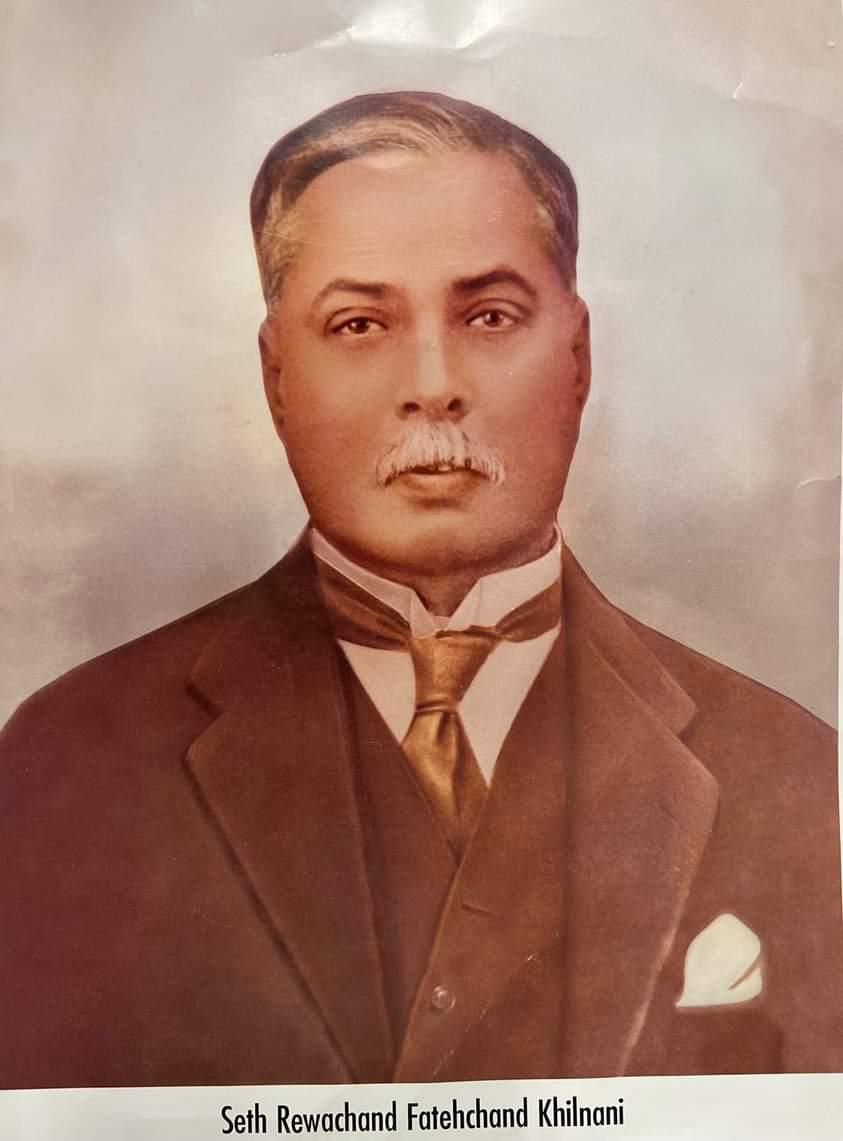 Prakash had been sharing lots of memories over the phone during our conversation, which I published three and half a year years back and surprisingly I received a message from Mr. Vinod Khilnani, who introduced himself as youngest son of Prof. Manohardas Kauromal Khilnani. “I am also settled in USA. One of my sisters read your article and forwarded it to me. It is really delighting to know about Prakash,” he wrote sharing his contact number and desired to share contact numbers of Prakash, and mine, which I did.
Prakash had been sharing lots of memories over the phone during our conversation, which I published three and half a year years back and surprisingly I received a message from Mr. Vinod Khilnani, who introduced himself as youngest son of Prof. Manohardas Kauromal Khilnani. “I am also settled in USA. One of my sisters read your article and forwarded it to me. It is really delighting to know about Prakash,” he wrote sharing his contact number and desired to share contact numbers of Prakash, and mine, which I did.
It was really a big success in a quest to connect with another important member of Khilnani dynasty.
On June 7, 2022, I received a message from Mr. Vinod on WhatsApp. “I am now in touch with Prakash, thanks to you.”
Also read: Rajiv, the last Khilnani who left Sindh
In another message Mr. Vinod told that he is in touch with his brother Ashok and Renu Bhabhi who were in California. When I shared the interview of Madam Renu, published in a Sindh daily, He said, “I cannot read Sindhi script but will give it to my eldest sister Sharda who is 80 and remembers our home in Karachi on Bunder Road extension. She can read it easily. Thanks for reminding us of our roots.”
Meanwhile Mr. Prakash told that Mr. Vinod had shared with him family tree and wished to organize a reunion party of Khilnani families, which couldn’t materialize as Mr. Vinod had been too busy handling business matters.
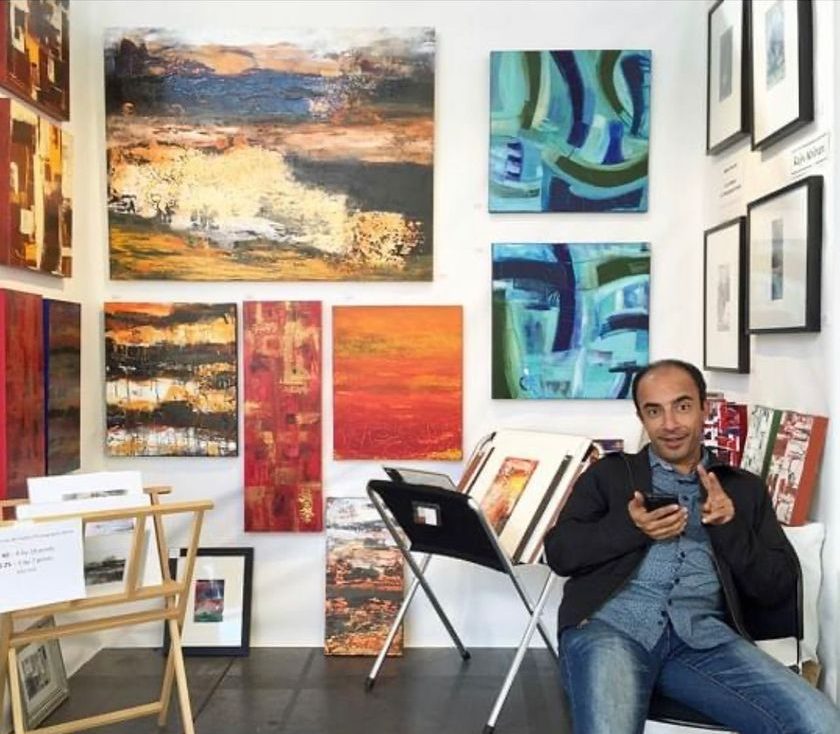
I continued searching other members of Khilnani family and succeeded contacting three Khilnanis – Rajiv, a renowned artist/painter and actor, Vinita, also a film actress and TV star, and her father Mr. Suresh Khilnani, all settled in USA. Rajiv and Vinita were co-actors of a Hollywood movie. Rajiv told that his ancestors used to live in Karachi and he was the last member of his family to shift to USA in 1980s.
Prakash, who turns 68 on November 6, 2023 (Today), had been in constant touch with me, and we used to share whatever we discovered. A few days back, he rang, “My dream of reunion remains unfulfilled.” And I decided to make an effort afresh.

I called Mr. Dwarko Khilnani, a former officer of Reserve Bank of India, and author of several books for NRIs, settled in Mumbai. I wanted to know the reason why the Khilnanis are not in touch with each other. “We lost the track of many of our relatives. Those who were of average income, maintained relations, while the rich and living in posh areas like Warden Road, Bandra and Santacruz, had no time for others. I met some of the Khilnanis during marriages in Delhi but they did not respond. One of them didn’t even recognize us,” he told and continued, “I avoid those Khilnanis. We brothers are very happy now in our lives.”
“Partition had created a class among many Sindhis,” he remarked.
Also read: Vinita Khilnani, an American Actor, Comedian and Singer
Mr. Dwarko Khilnani, who revived Sahiti Panchayat in 1998, said “Our elders like Daulatram Balani, Kanyalal Khatwani, Narsing Golani, Hundraj Lalwani, Vishno Tewani, Nari Gursahani and Puran Jethwani, loved Sahiti and expected I will also prove a true Sahiti man. I did but after nearly 3 decades I have found nobody loves his village now. We are only after money, and have forgotten Sahiti and its culture.”
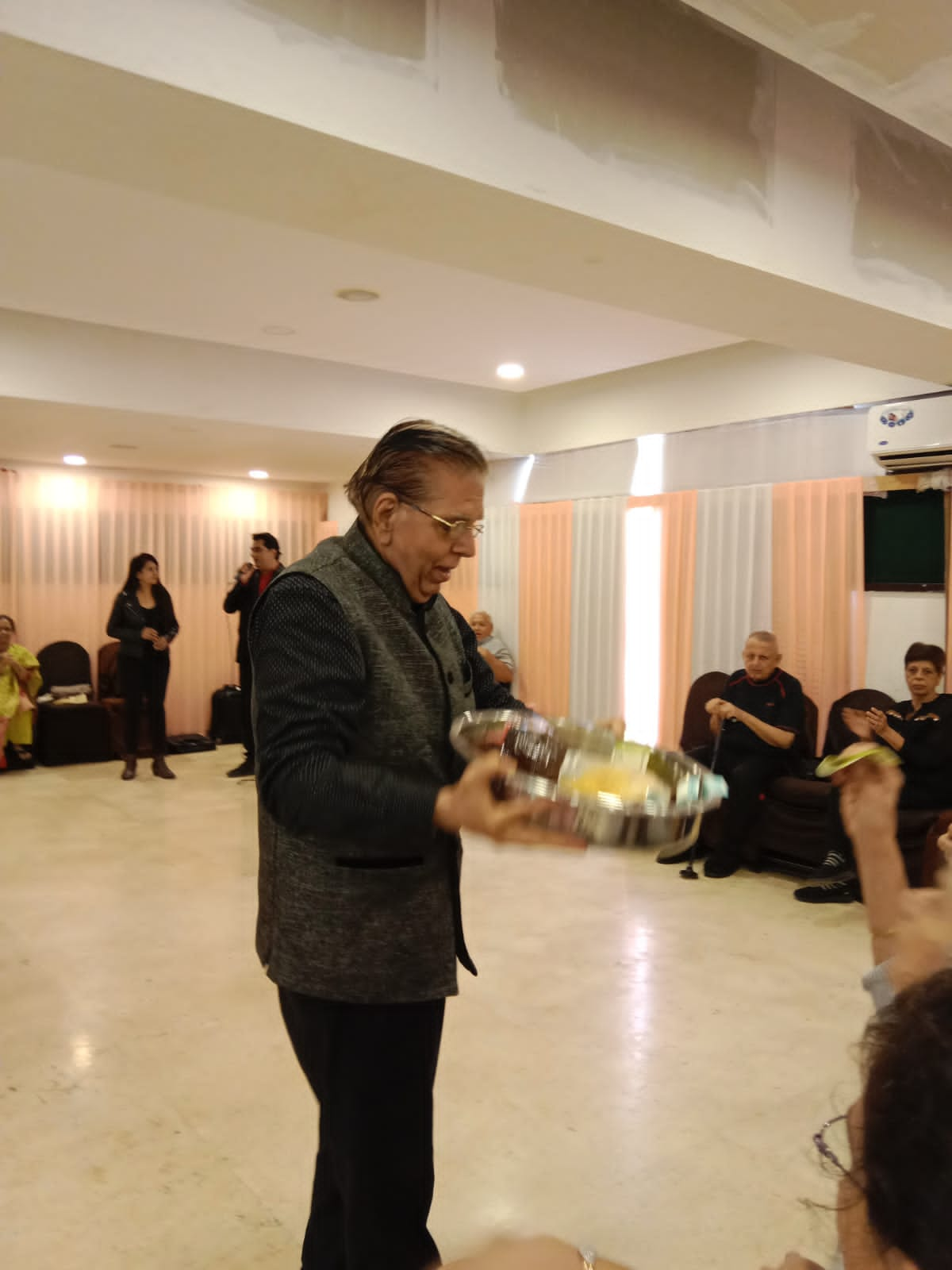
“Rich Khilnanis did not do anything for Sahiti and even did not bother about their clans. Now due to digitization, Sahiti will be on net, and I have collected data of boys and girls of all India and shortly will be segregating Sahiti boys and girls from All India list. Dear brother everybody knows I love my Sahiti and my Bhiria but I regret that I could not unite my Khillnanis,” he said adding that a new body, consisting of young blood, has been installed to revive the Sahiti Panchayat.
“Even after retirement my organization Reserve Bank Sindhi Sabha Mumbai is united under my leadership and it will remain united,” he concluded.
It was really painful to know prevalence of class difference among the Khilnanis – the main reason behind their indifferent attitude.
“I will not give up. My quest to connect Khilnanis will continue,” I assured Prakash Khilnani.
My goal includes contacting two important members of Khilnani dynasty – Mr. Raj Prem Khilnani, a former Director General of Police Mumbai and Prof. Sunil Khilnani, a renowned author.
_________________
Nasir Aijaz is a senior journalist and Chief Editor, Sindh Courier, based in Karachi. He is author of nine books on literature, language, history and travelogue. He can be accessed at nasir.akhund1954@gmail.com